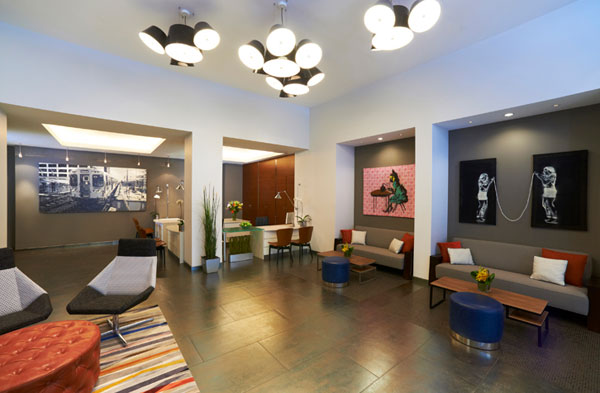✕

Column: industry Tag: independent hotels,CapEx budgets Published: 2017-10-19 13:57 Source: Author:

The renovation of the lobby at the Kinzie Hotel in Chicago will be one of the property’s bigger CapEx spends in 2018. (Photo: The Kinzie Hotel)
REPORT FROM THE U.S.—As hoteliers look ahead to next year, they are setting spending priorities based on what they hope will lead to significant returns on their investments.
Those with independent properties have the freedom to make decisions without brand requirements dictating every move, but they also must do so without the vastly wider knowledgebase of a brand.
Instead of reacting broader industry trends, independent hoteliers focus on their individual properties and what they believe will hit the right notes with their specific guests.
Property enhancements will take priority for the Kinzie Hotel in Chicago in 2018, where the plan is to invest about 2.5% to 3% of room revenue, said GM Andrew Eck.
The main capital expenditure for the hotel will be an upgrade of its guestroom door locks to RFID readers, he said, because guest and team member safety are most important.
“We wanted to wait until the technology was fully vetted,” he said. “We wanted to make sure it was entirely secure. The tracking (feature) is great. We wanted to let others be the guinea pigs on that.”
Environmental improvements
By virtue of being designed well, the newly opened Godfrey Hotel Boston doesn’t require a lot of physical property upgrades, which means it can target its CapEx budget to lighter guest touches, area GM of East Coast operations Larry Casillo said.
“You might also say having such a solid and efficient physical plan and infrastructure gives us the opportunity to focus on things guests will appreciate,” he said.
Guests of the Godfrey Hotel?care about the environment, he said, and the hotel’s budget for improvements will reflect that.
The hotel currently has an ozone filtration system in its laundry operations, he said, and it has an efficient, low-carbon footprint.
“We’re looking to enhance this filtration system to the second generation,” he said. “It’s better for the linens and has a much lower footprint on the environment. It’s a way for us to make very good decisions locally without having to go through a major approval process. It’s better for us, better for the environment, and our guests appreciate that.”
Tech upgrades
Guests also want new technology, the Kinzie’s Eck said, so the hotel is looking to upgrade its guestroom TV systems to allow guests to use their video-streaming accounts.
“We’ve found guests aren’t interested in the movie channels,” he said. “They would rather use their own services. Most guests have them, and they don’t have to pay anything.”
The upgraded technology will interface with the hotel’s property management system, he said, so when a guest isn’t in the room, it won’t work. It resets with each new guest, he said.
Eck said he and his staff are vetting other new tech additions, including voice companions, such as Alexa and Google Voice, that can automate and personalize some amenities. But, as with the door locks, he wants to wait a year or two for all the bugs to be worked out.
“I think it will become more popular as time movies on,” he said.
Public space
A renovation of the lobby is coming up next year to add another “wow factor,” Eck said. The lobby currently has sit-down desks for guests at check-in, which will change to stand-up pods.
“It will remove the barrier between us and guests—(making it) more a conversation rather than an actual process,” he said. “We want to make sure our guests feel comfortable.”
Lobby design will also be upgraded to showcase local artists, he said.
“We want guests to fall in love with this city as much as we have,” he said. “Everything we focus on will all link back to Chicago.”
The process
When preparing the next year’s budget, Eck said he brainstorms with his team, while walking the property and reviewing guest surveys and feedback. The leadership team then meets to make a list of recommendations to the corporate office.
For projects that fit within the budget framework, bids are solicited and submitted to ownership for approval. The owners want the data and the rationale behind the recommendations, he said, and showing a return on investment is necessary for any project.
Having the staff involved helps them buy into the projects and gets them excited, he said.
“Having them think like owners, having them participate in that smart decision for the asset is important,” he said. “If they’re involved with that decision, once we execute and have the product in hand, they will be energized to take care of it more.”
Casillo said the Godfrey Hotel Boston similarly involves the staff in making a wishlist of projects, which also goes through an approval process.
“It’s what makes sense for the spend,” he said, adding the hotel team focuses on guest enhancement and the return on investment.
“If we can make efficiency improvements or enhance the guest experience, that’s where our focus is,” he said. “It gives us the opportunity to be the best at this location in this particular asset. That gives us a strong competitive advantage over branded hotels, especially in this luxury lifestyle segment.”
Previous:Corinthia Hotels expands into Brussels, capital of Europe
Next:What the growth of soft brands means for indie hotels
Hot key words
Hot Products
Popular Vendors